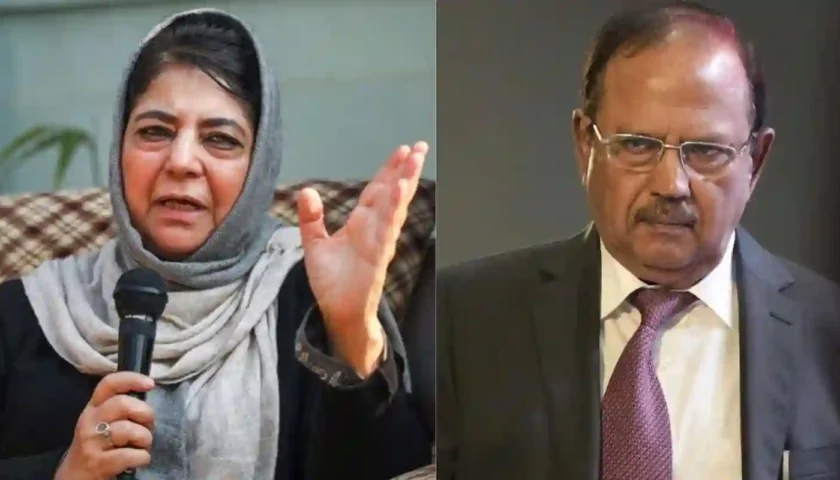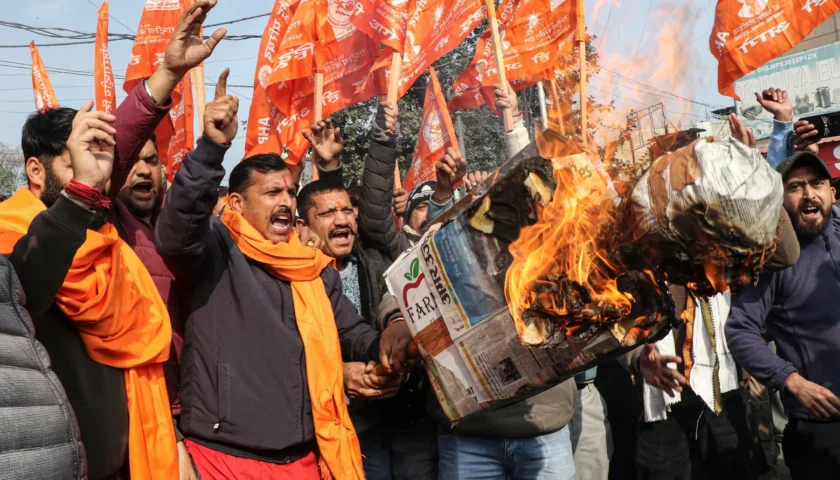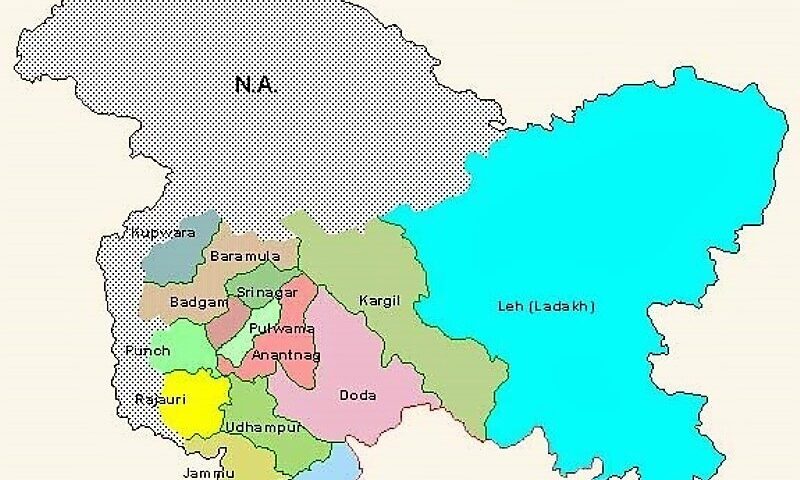Judicial Rebuke: A Wake-Up Call from the Bench
By: Javid Amin | 10 September 2025
The Jammu and Kashmir High Court recently came down heavily on the administration for failing to act against the rampant sale of unhygienic meat and poultry across the Union Territory. The court described official responses as “cosmetic”, highlighting that reports filed by departments lacked both substance and seriousness.
The Bench minced no words when it observed:
“There may be officers who will do nothing, but you as amicus file your response in writing and also give us a complete road map to curb this menace.”
This sharp rebuke is not just a reflection of judicial displeasure—it is a mirror to institutional apathy. The High Court essentially underscored that the system designed to protect public health is crumbling under inefficiency, negligence, and perhaps vested interests.
The Rotten Reality: Key Concerns Raised
Despite repeated warnings and occasional raids, the sale of rotten, unsafe, and chemically treated meat continues unchecked in several districts of Jammu and Kashmir.
Major Findings Highlighted:
-
Unregulated Meat Shops: Hundreds of shops operate without licenses or veterinary checks.
-
Lack of Hygiene: Meat is often stored without refrigeration, left hanging in open air, swarmed by flies and dust.
-
Chemically Laced Products: Cases of formalin-treated or chemically preserved meat have surfaced, posing grave health risks.
-
Ineffective Monitoring: Municipal Health Inspectors, whose job is to enforce food safety, have been functioning like “Khilaf Warzi Officers”—busy with paperwork, but blind to ground realities.
This unchecked sale of unsafe meat is not just a local inconvenience—it has become a public health hazard, threatening an entire population with food-borne illnesses.
Proposed Measures: Policing the Plate
In response to the court’s observations, senior police officials and administrative heads have put forward proposed enforcement measures.
Suggested Action Plan:
-
Flying Squads: To be formed under the coordination of Divisional Commissioners and District Magistrates, empowered to conduct surprise checks and immediate seizures.
-
Police Involvement: Local police stations instructed to act swiftly against violators, treating unhygienic meat sale as a serious offense.
-
Ban Enforcement: A complete crackdown on unsafe meat sales, including closure of unauthorized shops.
-
Inter-departmental Coordination: Health, police, and municipal bodies to work in tandem instead of shifting responsibility.
If executed earnestly, these measures could mark the beginning of a clean food ecosystem in J&K. But the gap between policy and practice has historically been the Valley’s biggest challenge.
Court’s Final Word: Accountability Above All
The Bench concluded with a warning:
“Strict action must be taken, come what may.”
It further stressed that if officials had been fulfilling their statutory duties under the law, citizens would not be forced to knock on judicial doors for something as basic as safe food.
The observation resonates beyond the courtroom—it points to a trust deficit between the state and its people. When food, the very foundation of survival, becomes unsafe, it reflects not just negligence but a betrayal of public trust.
The Human Angle: More Than Just Meat
While the case appears to revolve around meat, its implications are broader. This is about:
-
The Right to Safe Food: Every citizen is entitled to hygienic and uncontaminated food.
-
Public Health: Unsafe meat consumption leads to food poisoning, infections, and long-term diseases.
-
Economic Burden: Medical costs and loss of productivity hit households already under stress.
-
Moral Governance: Citizens expect honesty and accountability from those sworn to protect them.
Thus, the issue is socioeconomic, legal, and moral—not merely administrative.
Public Health Fallout: The Invisible Crisis
Unsafe meat is not a small matter—it can trigger widespread health crises. Medical experts in Kashmir have repeatedly warned about:
-
Gastrointestinal Infections: Diarrhea, vomiting, and stomach infections are directly linked to unhygienic food.
-
Zoonotic Diseases: Unchecked slaughter without veterinary oversight risks spreading animal-to-human diseases.
-
Antibiotic Resistance: Meat laced with chemicals and antibiotics can create resistant bacteria—an invisible ticking bomb.
-
Children at Risk: Malnourished children are more vulnerable to contaminated food, worsening the region’s health indices.
Unchecked, this could escalate into a public health emergency, costing lives and resources.
The Socio-Economic Dimension: From Livelihoods to Losses
The meat industry in Jammu and Kashmir is vast, involving butchers, transporters, suppliers, and retailers. It provides livelihoods to thousands. However, unregulated practices harm not just consumers but also genuine traders.
-
Unfair Competition: Law-abiding vendors lose business to unscrupulous sellers offering cheaper but unsafe meat.
-
Consumer Distrust: Once trust is broken, the entire sector suffers—even compliant sellers face skepticism.
-
Tourism Impact: Food safety concerns directly dent Kashmir’s image as a tourist destination.
-
Healthcare Burden: Treating food-borne diseases diverts already stretched health resources.
Thus, what appears to be a local meat market problem is actually an economic stability issue.
Governance & Legal Framework: Why Enforcement Fails
India already has strong laws under the Food Safety and Standards Act, 2006. These cover licensing, hygiene, inspection, and penalties. Yet in J&K, enforcement remains weak.
Key Challenges:
-
Shortage of Inspectors → Few officials for hundreds of shops.
-
Corruption & Collusion → Local-level compromises dilute enforcement.
-
Poor Infrastructure → Lack of slaughterhouses, cold storage, and testing labs.
-
Judicial Overload → Courts step in only when governance collapses.
This raises a bigger question: Is food safety not a priority in governance?
Lessons from Elsewhere: How Others Got It Right
Globally, regions like Kerala, Singapore, and the EU have cracked down on unsafe meat sales with success.
-
Kerala: Introduced modern slaughterhouses with strict veterinary oversight.
-
Singapore: Enforces zero-tolerance policies on food hygiene, backed by regular training for vendors.
-
European Union: Heavy penalties for food violations, coupled with traceability systems from farm to plate.
J&K can borrow these models, blending them with local realities to create a robust food safety culture.
Roadmap Ahead: From Courtroom Orders to Real Change
For sustainable change, J&K needs a multi-pronged roadmap:
-
Modern Infrastructure: Build hygienic slaughterhouses and cold storage units.
-
Capacity Building: Train municipal inspectors, equip them with modern testing kits.
-
Community Awareness: Educate citizens on identifying unsafe meat and reporting violations.
-
Digital Monitoring: Use technology for shop licensing, inspections, and real-time reporting.
-
Accountability Framework: Penalize not just sellers but also negligent officers.
Without these steps, court warnings will remain paper tigers.
Bottom-Line: Safe Food as a Fundamental Right
The High Court’s strong words echo a deeper truth—food safety is not a luxury, it is a right. Citizens of Jammu and Kashmir should not have to live in fear of what’s on their plate.
The fight against unhygienic meat sales is not merely about stricter raids—it is about rebuilding trust, ensuring accountability, and protecting the health of generations to come.
If authorities continue to turn a blind eye, the judiciary will remain the last refuge. But should citizens really have to seek judges to guarantee safe food? The answer lies in whether governance in J&K treats this issue as a passing concern—or as a moral responsibility owed to its people.




